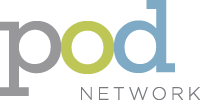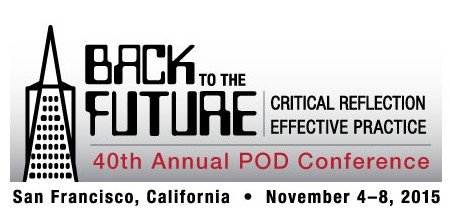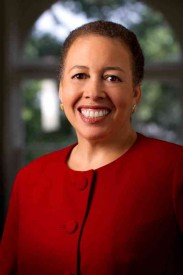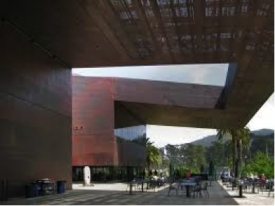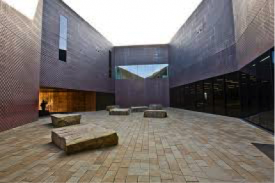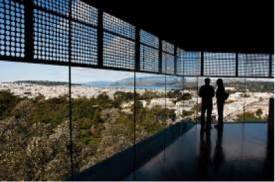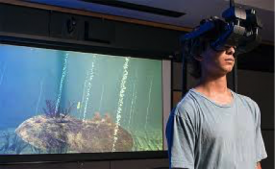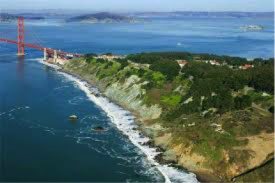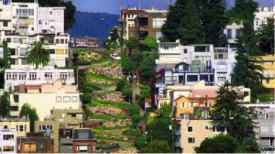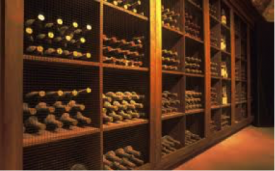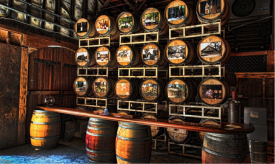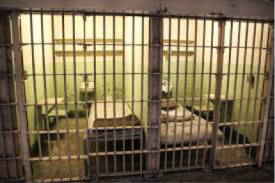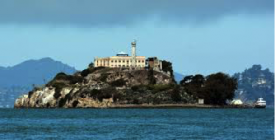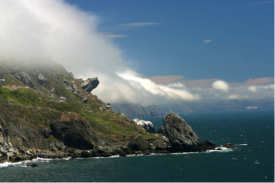See conference fees for members and non-members below.
The FINAL pdf version of the conference program is available HERE
Show your POD pride! This year you can purchase t-shirts, coffee mugs, and other items with the POD Network logo. Go to Cafe Press. Remember the Holiday Season is coming up!
Photographs of the conference are posted, if you are interested in posting your pictures as well please contact Jake Jacobson.
For the first time ever the plenary will be “flipped”! We are gathering input from the POD membership on topics that they would like the plenary speaker, Dr. Beverly Tatum, to address at the 40th Annual POD Conference, “Back to the Future: Critical Reflection, Effective Practice.” See you there!
Please read this information completely before preparing your registration form. You may scroll through the information or link to the various segments as indicated in the directory below.
- Invitation to Attend
- Overview of the POD Network and Its Mission
- Overview of the Annual Conference
- Call for Proposals
- Plenary Sessions
- Pre-Conference Workshops (descriptions and costs)
- Concurrent Session
- Special Sessions: POD-Sponsored, Sunday Anchor
- POD Unconference (POD-U)
- Birds of a Feather (BOFs)
- Resource Fair
- Job Fair
- Vendor Exhibit
- Vendor Interactive Workshops
- Excursions (descriptions and costs)
- Membership Dues
- Conference Registration Fees
- Hotel
- Transportation
- Shipping Information
INVITATION TO ATTEND
We cordially invite you to participate in the 40th Annual POD Conference to be held in San Francisco, California on November 4 – 8, 2015.
This year’s conference theme is Back to the Future: Critical Reflection, Effective Practice. This theme will guide us as we celebrate an amazing accomplishment, our 40th annual conference, and affords us a unique opportunity to appraise our past and present work as educational developers. The theme also seeks to inspire conversations about the future direction of our organization by connecting the previous presidential addresses by Kathryn Plank, who encouraged us to look at ourselves in the present, and Leslie Ortquist-Ahrens, who guided us through an examination of our past.
At this year’s conference, we will go “Back to the Future” by exploring the organization’s rich past, as well as our progress in promoting meaningful change in higher education. Since its inception, POD and its members have sought to advance the field of educational development in higher education. Along the way, new ideas have emerged, old ideas have been reinvented, some have been discarded, and other have stood the test of time. This year’s conference represents a perfect time to appraise our progress and prepare for the future of educational development
As we set out to celebrate four decades of service to higher education this November, we ask you to engage in a process of critical reflection. Faced with increasing demands, fewer resources, and limited time, reflection feels more like a luxury than a necessity. Yet, as John Dewey noted, “we do not learn from experience…we learn from reflecting on experience.” Thus, reflection is vital to learning, not just at the individual level, but at all levels of the academy.
With this in mind, we ask you to consider the process of critical reflection.
- What are the characteristics of a reflective practitioner, department, organization, or profession?
- What should we reflect upon in our work as educational developers?
- In what ways has reflection played a meaningful or impactful role in your work?
- What role does reflection play in overcoming challenges or in identifying new solutions?
- What role does reflection play in promoting innovation?
- What strategies have you found useful or effective in guiding critical reflection on your efforts, or in the efforts of your center, organization, or institution?
- What methods do you use to share what you learn from reflection and introspection with others?
We also challenge you to reflect on key topics and issues important to our work and and in assessing our progress as educational developers.
- How do past challenges compare to those we face today and to the ones we will likely face tomorrow?
- How does the work we did in the past compare to the work we do today and will do in the future?
- What has the impact of the Scholarship of Teaching and Learning been on our work?
- How has the function and purpose of assessment changed over time and how might it evolve in the future?
- How has our understanding of how learning works changed and what influence has this had on how we work with our constituents?
- What progress has POD made in educational development and higher education?
- Who do we turn to help us reflect upon key topics and issues?
- How open are we to listening to others (colleagues, those in other fields, etc.) for guidance and feedback on key topics and issues?
- What were our past key topics and issues and have they come back again?
- What do we do to help make educational practices inclusive for all learners?
- How have the topics of diversity and inclusion impacted our work and progress in educational development?
- How do we assess ourselves to demonstrate that we are effective agents of change at our institutions?
Lastly, we must explore how we motivate and inspire those around us to value and engage in critical reflection.
- How do we inspire others (faculty, departments, organizations, etc.) to critically reflect on their work, their effectiveness, and their progress?
- What approaches have you used to encourage faculty to critically reflect on their work?
By reflecting on the past, as well as our progress and experiences, we identify and continue to refine effective practice, and the annual conference has served as a nexus for the sharing of time-tested approaches for 40 years. In celebration of this milestone, we encourage participants to share these enduring practices and more importantly, to create platforms for critically reflecting on these strategies and for discussing how they may be used to meet current and future challenges.
- What time-tested strategies or practices have been useful in meeting current challenges? How might these strategies be used to meet future needs or challenges?
- What are other examples of time-tested practices/strategies that have been revived for current technologies?
- How do we adopt new technologies or strategies that build upon effective practice?
- What are ways we can use current effective practice to help us envision future needs?
- What implications do effective or emerging practices in other areas or fields (i.e., maker movement, business, psychology, social media, etc.) have for us in our work in educational development or in the strategies we encourage faculty to implement in their classrooms?
Because of its persistence, diversity, and innovative spirit, San Francisco represents an ideal location for this year’s conference. The city has faced numerous challenges throughout its history, including devastating earthquakes, great fires, and economic busts. After each, it met the challenge – building upon its past to find a new direction and new success. San Francisco’s ability to not only endure, but to evolve, will serve as a powerful backdrop for us as we explore and build upon our own experiences in order to meet current and future challenges. Though it has struggled at times to accept different cultures and ideas, San Francisco has embraced its diversity, and in doing so, reminds us that inclusion is an important component for not only improvement, but progress and success. Today, the city stands as a progressive, multicultural city that is connected to tremendous innovation, serving as the home to a vibrant maker movement, as well as the headquarters for leading technology and software companies.
We look forward to going back to the future with you in San Francisco. Please plan to join us as we celebrate this important benchmark in our organization’s ongoing progress.
Bill Watson, Conference Co-Chair [email protected]
David Sacks, Conference Co-Chair [email protected]
Carl S. Moore, Program Co-Chair [email protected]
Carolyn Oxenford, Program Co-Chair [email protected]
Hoag Holmgren, POD Executive Director [email protected]
_______________________________________________________________________
OVERVIEW OF THE POD NETWORK AND ITS MISSION
The POD Network
POD supports a network of over 1100 members who have an interest in educational and organizational development. While POD members come primarily from the U.S.A. and Canada, the membership also represents 20 other countries. Through its members, the POD Network leads and supports change for the improvement of higher education through faculty, instructional, and organizational development.
The POD Network seeks to promote the scholarship of teaching, learning and organizational development that reflects a spirit of inclusion, where all members are invited to collaborate and interact with colleagues across disciplines and borders.
The POD Mission
The Professional and Organizational Development Network in Higher Education (POD) fosters human development in higher education through faculty, instructional, and organizational development.
POD believes that people have value, as individuals and as members of groups. The development of students is a fundamental purpose of higher education and requires for its success effective advising, teaching, leadership, and management. Central to POD’s philosophy is lifelong, holistic, personal, and professional learning, growth, and change for the higher education community.
______________________________________________________________________
OVERVIEW OF THE ANNUAL CONFERENCE
The annual conference typically attracts between 650 and 800 people, and primarily targets practitioners in the fields of educational and organizational development, both novice and experienced. The conference appeals to administrators, faculty, educational developers, graduate and professional student developers, graduate students, independent consultants, members of higher education organizations, and publishers for these communities.
Collectively, program sessions do the following:
- Actively engage participants
- Reflect current research and theoretical frameworks
- Involve colleagues from around the world
- Address needs of graduate students and both new and experienced faculty
- Stimulate personal growth
- Build working partnerships
- Highlight contributions of diversity
______________________________________________________________________
CALL FOR PROPOSALS
Proposal submission is now closed. Proposals featuring best practices, new resources, innovative approaches, discussion of critical issues, presentation of research and work-in-progress were submitted online and were due on Monday, March 9, 2015. All proposals were evaluated using a blind peer-review process. Detailed information about the session types, topic areas, guidelines for submission, submission process, and the Robert J. Menges Honored Presentation Award are included in the Call for Proposals. (link to: https://podnetwork.org/content/uploads/2015PODCFP-Final.pdf)
________________________________________________________________________
PLENARY SESSION
Friday, November 6, 10:30 AM – 12:00 PM
Beverly Tatum
We are excited to feature Dr. Beverly Tatum, President of Spelman College, as our plenary speaker. She is widely recognized as an expert in race relations and author of three books, Can We Talk About Race? And Other Conversations in an Era of School Resegregation (2007), Why Are All the Black Kids Sitting Together in the Cafeteria? and Other Conversations about Race (1997), and Assimilation Blues: Black Families in a White Community (1987). Dr. Tatum was the 2005 recipient of the Brock International Prize in Education and the 2013 recipient of the Carnegie Academic Leadership Award.
This year’s plenary, “Can We Talk About Race? A Conversation with Dr. Beverly Daniel Tatum,” will be different from past years as we look to “flip” the traditional keynote address and provide the POD membership opportunities to shape the themes and ideas Dr. Tatum will explore with us in San Francisco. Keep an eye out for additional information on how to submit topics, questions, and ideas you would like included in POD’s first-ever “flipped” plenary discussion.
_____________________________________________________________________
PRE-CONFERENCE WORKSHOPS
Pre-conference Workshop co-chairs: Katie Kearns ([email protected]) and Lynn Eaton ([email protected]).
Full Day Pre-Conference Workshop
This year’s full-day Pre-Conference Workshop (W1) begins Wednesday, November 4th, 1:30PM-4:30PM, & continues Thursday, November 5th, 8:30AM-12:00PM. Breakfast on Thursday is included for participants of W1, as is a copy of A Guide to Faculty Development, 2nd Ed.
W1 – Getting Started: Workshop for New Faculty Developers, $150
Isis Artze-Vega, Florida International University
Michele DiPietro, Kennesaw State University
Peter Felten, Elon University
Teresa Johnson, The Ohio State University
Jonathan Iuzzini, Monroe Community College
Faculty development can be one of the most rewarding careers in academia but, for most of us, requires the development of new skills and broader perspectives. As we process several core concepts and examples from different types of institutions, participants will engage in discussions, role-plays, and breakout groups to better understand what faculty developers do and how we do it. We’ll practice skill-building and you’ll learn how to say “yes” to the right things. Each participant will leave the session with an individual action plan and a support network to help you achieve your goals.
Topics: Faculty Professional Development, POD Professional Development
Audience: New/recent faculty developers (5 years or less)
Half-day Pre-Conference Workshops
Thursday, November 5th, 8:30 AM – 12:00 PM.
(Breakfast is not included with half-day workshops. All half-day workshops are $70)
W2: Expanding your Team: Effective Hiring Practices for Center Directors
Deb DeZure, Michigan State University
Alan Kalish, The Ohio State University
Matthew Kaplan, University of Michigan
Matthew Ouellett, Wayne State University
With the growth and diversification of teaching centers, directors are increasingly engaged in hiring, orienting, training, supervising, and evaluating staff with diverse backgrounds, experience, and expertise for differentiated and often new roles. Four long-time developers will engage participants in an inquiry-based conversation on effective hiring practices. The program is designed for center directors who are expanding their teams. This workshop will explore all phases of the hiring process; key issues, decisions and options at each phase; ways to recruit and retain a multicultural staff; and what constitutes effective practices. Numerous models and sample materials will be provided.
Topics: Administration, Diversity, Start-up
Audience: Large colleges and universities,
W3: Assessing Our Work With Scholarly Rigor, Inclusiveness, and Integrity
Wayne Jacobsen, University of Iowa
Stacy Grooters, Stonehill College
Effects of educational development are difficult to assess, especially when we pursue complex outcomes such as navigating institutional change or developing skills for engaging with difference. However, without credible assessment, decisions about improving our programs rely primarily on our power to prevent or enforce change. This session provides a framework and four distinct entry points for taking assessment to higher levels of scholarly rigor, inclusiveness, and integrity. During this session, participants will formulate an action plan for strategically gathering evidence that can be used to critically examine the quality and inclusiveness of their programs.
Topics: Diversity, Assessment, POD Professional Development
Audience: All POD members, Administrators
W4: Using Strategic Planning to Reflect on Center Assessment
Angela Linse, Penn State University
Larkin Hood, Penn State University
“How do we assess ourselves and demonstrate we are effective?” is a perennial question for faculty developers and teaching center directors. This session is founded on the premise that our strategic plans should guide center assessment. Clear statements of what we want to achieve in coming years (goals) can lead to targeted assessment that provides evidence of achievements. Participants will discuss: why we assess, processes for achieving our mission and goals, and presenting our assessment results. Participants will also compare their center vision and mission statements to classic strategic planning statements and develop or rewrite achievable goals.
Topics: Assessment, Administration, Start-up, Center Evaluation
Audience: Administrators
W5 – Reflection for Effectiveness: Reframing Faculty Engagement
Craig Nelson, Indiana University
George Rehrey, Indiana University
Carol Hostetter, Indiana University
How can academic development programs foster faculty engagement most effectively? We present an expanded diagnostic framework and show how we used it for critical review of our recent programs. We start with the contrast from behavioral economics between economic and social rewards, examining the differences in effectiveness between programs with different emphases. We expand our analysis to contrast direct and indirect social and economic rewards and ask how to maximize total rewards given economic and staffing constraints. We invite participants to use this framework to critically reflect on their current and developing programs to help make their programs more effective.
Topics: Faculty Professional Development, SoTL, Assessment
Audience: All POD members
W6 – Inclusive Teaching and Learning in Science, Technology, Engineering, and Mathematics
Beth Fisher, Washington University in St. Louis
Regina Frey, Washington University in St. Louis
Efforts to retain more women and underrepresented minorities in STEM majors create a need for inclusive-teaching programs in STEM. This workshop offers the opportunity to participate in an interactive workshop series. Participants will be able to 1) describe research on stereotype threat and growth mindset, and reflect on how this research can inform inclusive teaching in STEM; 2) explain micro-aggressions and their potential effects on students’ sense of belonging and decisions to persist in STEM; 3) develop specific strategies that can create an inclusive learning environment. Participants will design a preliminary plan for similar workshops on their own campuses.
Topics: Diversity, Faculty Professional Development, Teaching & Learning
Audience: All POD members, Faculty (conference attendees who are faculty and also part-time developers), STEM faculty and faculty developers who work with STEM faculty
W7 – Stop, Swap, & Reflect: Building Critical Learning Environments for Faculty Development
Lott Hill, Columbia College Chicago
Soo La Kim, Columbia College Chicago
This hands-on, minds-on 3-hour pre-conference workshop will model easily adaptable approaches to teaching and faculty development. Instead of standing in front of faculty and telling them to engage students, we invite them to dive in and engage; to experience the learning as students might, to reflect more deeply about how they relate to and connect with their students, and to consider how they can create more equitable and inclusive classroom spaces. These learner-centered activities are designed to build community and facilitate discussion and faculty development in ways that are thought-provoking and (dare we say it?) fun!
Topics: Faculty Professional Development, Teaching & Learning, Diversity
Audience: All POD members, New/recent faculty developers (5 years or less), Seasoned faculty developers
W8 – Field Testing a Comprehensive Faculty Development Evaluation Model: What We Learned
Sue Hines, Saint Mary’s University of Minnesota
Shelly Bayer, South Dakota State University
Jennifer Russell, Academy of Art University
Vanessa Spang, Academy of Art University
Michelle Felix, Milwaukee Area Technical College
Ann Johnson, Saint Thomas University of Minnesota
Leslie Reid, University of Calgary
Laurel Willingham-McLain, Duquesne University
Libby Roderick, University of Alaska, Anchorage
Recently, there is growing interest in evaluating the effectiveness of faculty development. In response, the facilitator for this session developed a 4-phase comprehensive evaluation plan based on the literature and findings from investigating faculty development evaluation practices at 53 learning centers. The model is currently being field tested at 10 centers representing a variety of institutions in North America, thanks to a POD grant. The purpose of this session is to share the evaluation model and, using a panel discussion, provide an opportunity for the field-testers to reflect upon and discuss their field-testing experience and discoveries regarding their evaluation work.
Topics: Assessment, Research
Audience: All POD members
W9 – Ground Zero: Launching an Effective Assessment Initiative at your College
Eric Metzler, Indiana University
Lisa Kurz, Indiana University
Joan Middendorf, Indiana University
This 3-hour preconference session is designed to help faculty, consultants, and administrators learn effective practice when tasked with building an assessment program from the ground up. Participants will experience the activities we typically ask faculty to do to generate goals and learning outcomes, align the curriculum, and create assessment rubrics. They will also step back to analyze, interpret, and evaluate sample documents — essential steps in closing the assessment loop. Participants will have the opportunity to adapt and apply their new knowledge and skills to launch a systematic, useful and enduring assessment program at their own institution.The popularity of active learning methods and the explosion of online, blended, and flipped delivery options means that college teachers have the ability to choose where, when, how to engage students in learning. As options increase, it is increasingly important to leverage the most appropriate and effective teaching methods. In this workshop, participants will explore seven common ways of learning in higher education. However, we will go beyond the usual discussion of tips and techniques to explore the underlying purpose, rationale, and best use of each method. The activities demonstrated can be used by participants in their own workshops.
Topics: Teaching & Learning, Faculty Professional Development
Audience: All POD members
W10 – Reflecting on Reflection Activities: Catalyzing a Reflective Culture
Lauren Thomas, CELT, University of Washington
Brook Sattler, CELT, University of Washington
Cindy Atman, CELT, University of Washington
Jennifer Turns, CELT, University of Washington
Jim Borgford-Parnell, CELT, University of Washington
Ken Yasuhara, CELT, University of Washington
In this workshop, educators will discuss benefits and methods of reflection for both educators and students. In the workshop’s first half, we will focus on specific methods educators can use to prompt students to reflect. We will seed this discussion with a set of 120 reflection activities that, while drawn from engineering, we expect to apply to many disciplines. In the second half, we will explore how structured opportunities for educators to discuss teaching methods (such as the ones used to capture the 120 activities) can advance a culture of reflective practice.
Topics: Faculty Professional Development, Programs, Teaching & Learning
Audience: All POD members
W11 – Teacher-Centered Consultation: Reflective Inquiry Builds Resourcefulness and Self-Efficacy
Laura Border, University of Colorado, Boulder
Adam Blanford, University of Colorado, Boulder
Valentina Iturbe-Lagrave, University of Colorado, Boulder
Participants learn and practice a reflective inquiry approach to consultation. Reflective inquiry teaches consultees to spot their problem areas in content and student learning, and to apply a framework to solve content and learning difficulties. Reflective inquiry, in contrast to the more intimidating methods based on feedback, is non-evaluative and teacher-centered. Consultees view films of their classrooms, are guided to reflect on their own problems, and generate their own solutions. Consultants provide a content/learning activity framework and guidance on options and resources. Participants will engage in reflective inquiry, use the framework, and receive a list of resources for later use.
Topics: Faculty Professional Development, Graduate Student Professional Development
Audience: New/recent faculty developers (5 years or less), Graduate teaching assistants and those supporting this population
W12 – How’s it Going? Reflecting on Our Work
Suzanne Tapp, Texas Tech University
Sal Meyers, Simpson College
Kathryn Cunningham, Embry-Riddle Aeronautical College
Stephanie Rohdieck, The Ohio State University
Shaun Longstreet, Marquette University
Congratulations – you’re doing faculty development! What are the opportunities, challenges, and risks before you: reaching all constituents, budgeting, prioritizing, advocating, establishing your professional identity, evaluating your program, meeting increased demands? “How’s it Going?” offers early and mid-career faculty developers an opportunity to consult with peers and experienced mentors. Prior to the session, participants submit an issue they face. The session provides a safe place to collaborate with colleagues in reflecting on their specific issues, and together, identifying strategies. The process helps professionals build a sense of efficacy as leaders and establish relationships with colleagues across the career spectrum.
Topics: POD Professional Development, Organizational Development, Faculty Professional Development
Audience: New/recent faculty developers (5 years or less), all POD members, Mid-career faculty developers ___________________________________________________________________________
CONCURRENT SESSIONS
All concurrent session types undergo a blind peer-review process. A full schedule of concurrent sessions will be available here in summer 2015.
- 75-minute interactive sessions: Co-chairs Marie Kendall Brown ([email protected]) and Sal Meyers ([email protected]). Interactive sessions combine brief presentations or panel discussions with methods that engage all participants, reflecting POD’s long-standing tradition of interactive, collegial sessions.
- 75-minute roundtable discussions: Co-chairs Lisa Kurz ([email protected]) and Jessica Mansbach ([email protected]). Roundtable discussions provide an opportunity for various kinds of interactions in a smaller group setting (10-15 people), such as discussion of a concept, approach, program, issue, case study, or reading.
- 35-minute research presentations: Co-chairs Mary-Ann Winkelmes ([email protected]) and Julie A. Sievers ([email protected]). Research sessions include a presentation and discussion of new or on-going educational, professional, or organizational development research. Session leaders present their original research for the first 20-25 minutes, reserving 10-15 minutes for Q&A.
- Poster Presentations: Co-chairs David Boose ([email protected]) and Linda Beane Katner ([email protected]). The poster session provides an ideal format for presenting in a context where colleagues can engage in many one-on-one discussions, facilitated by well-designed posters, as well as supplemental materials.
Concurrent sessions may address one or more of the Topics and Audiences below.
Topics:
- Adjunct Professional Development: Practices, processes, theories, techniques, programs pertaining specifically to adjunct or part-time faculty development.
- Administration: Budgeting, funding, management, planning, performance appraisal, staff/faculty recruitment and retention, and other issues concerning the administration of a center or other unit.
- Assessment: Measuring the effectiveness of an aspect of practice and/or outcomes in order to improve (designate other topics to indicate the subject of assessment – e.g., teaching & learning, programs, Faculty PD).
- Diversity: addressing under-represented or minority populations on campus, in the classroom, in administration.
- Faculty Professional Development: Practices, processes, theories, techniques, programs pertaining to faculty development.
- Graduate Student Professional Development: Practices, processes, theories, techniques, programs pertaining specifically to graduate and professional student development.
- Organizational Development: Practices, processes, theories, or techniques related to the systemic development of institutions and organizations.
- POD Professional Development: Practices, processes, theories, techniques, programs pertaining to development of those in the professions represented by POD (e.g., Center staff, technologists, etc.).
- Programs: Organization, implementation, practices, theories, techniques related to programs and services (in centers and other units).
- Research: Systematic, generalizable investigations into clearly defined questions, employing accepted methods for data collection and analysis (designate other topics to indicate the subject of research – e.g., teaching & learning, programs, Faculty PD).
- Retention: Practices, processes, theories, techniques related to retaining students and improving graduation rates.
- SoTL: Practice of, results of, and programs supporting Scholarship of Teaching and Learning.
- Start-up: Practices, processes, organizational ideas related to establishment and growth of centers, programs, or other projects.
- Sustainability: incorporating applying principles of environmental and/or programmatic sustainability into educational development work.
- Teaching & Learning: Practices, processes, theories, techniques related to classroom and other teaching and learning.
- Technology: Explorations of current and new technologies that can support teaching, program or organizational development.
Audiences:
- Administrators
- All POD members
- Community colleges
- Faculty (conference attendees who are faculty and also part-time developers)
- Historically Black Colleges and Universities
- International POD participants
- Instructional Technologists and technology integration specialists
- Large colleges and universities
- New/recent faculty developers
- Seasoned faculty developers
- Small colleges and universities
_________________________________________________________________________
SPECIAL SESSIONS: POD-SPONSORED, SUNDAY ANCHOR
In addition to the standard pre-conference workshops, 75-minute sessions, 35-minute sessions, and poster sessions, the POD conference includes POD-sponsored sessions and an anchor session to close the event. POD-sponsored sessions are sponsored and submitted by members of various POD committees, then reviewed and vetted by POD’s Core Committee. The anchor session, a session that has particular importance and/or broad interest to POD membership, is chosen by the Conference Committee.
This year’s Anchor Session, “Everyone’s Future: Getting Faculty to Adopt Universal Design for Learning,” will be held on Sunday morning, 8:45-10:15 AM. Thomas Tobin (Northeastern Illinois University) will lead us on ways to make educational materials and practices inclusive for all learners including how we can motivate and inspire faculty to see how this will lead to greater diversity in their courses.
_________________________________________________________________________
POD UNCONFERENCE
POD Unconference (POD-U) provides conference participants with opportunities to engage in peer-to-peer learning, collaborative activities, and creative experiences. POD-U is about YOU, the conference participant! Similar to unconferences held at other events, POD-U is a largely participant-driven track, allowing you to decide what topics and discussions take place. These just-in-time learning experiences are an excellent opportunity for you to share what you know or to learn about something new. In addition to sessions planned and facilitated by conference participants, we have organized several sessions for you to share resources and to engage in conversations with experienced faculty developers and POD committee members.
Below is an overview of POD-U events:
POD-U SESSIONS
POD-U sessions, offered throughout the conference, are participant-driven events. You can create your own POD-U session or attend one created by someone else. These sessions are ideal for discussing challenges you are facing at your institution, sharing resources you have developed, discussing ideas or issues that emerge during the conference, solving a problem, developing new resources, sharing a personal talent, or simply meeting others with similar (and diverse!) interests. Additional information on how you can create your own POD-U session will be available in September.
BIRDS OF A FEATHER
Birds of a Feather (BoFs) sessions are informal conversations designed to foster relationships between experienced faculty developers and colleagues new to the field, and are intended to promote more meaningful interaction and deeper relationships than can sometimes occur during regular conference sessions. Each BoFs session is facilitated by an experienced faculty developer with expertise in a particular topic. All sessions take place on Friday from 7:30-8:45 AM. More information on specific BOFs will be available summer 2015, as well as in the Conference Program. Please contact BOF coordinators for more information: Tershia Pinder-Grover, [email protected] and Jody Horn, [email protected].
THE DOCTOR IS IN
In this session, participants have an opportunity to work individually and informally with members of the POD Research Committee and Grants Committee to discuss issues related to conducting educational research, Scholarship of Teaching and Learning research, or writing a competitive POD Network grant proposal. Research discussed can be of various kinds, quantitative as well as qualitative, related to teaching, learning, assessment, evaluation, and professional, organizational, or instructional development. This session takes place with the poster sessions on Friday from 3:45-5:45 PM
The Resource Fair provides a venue for you to find or exchange information and resources relevant to our work as organizational developers. This is a great opportunity to socialize while acquiring new information or by sharing activities, resources, and services that benefit the POD community. The Resource Fair features tables only from college- and university-affiliated programs and from non-profit organizations. The Resource Fair and Reception will be held on Friday evening from 5:15-6:45 pm. Materials and services may NOT be offered for sale or promoted for sale during the Resource Fair.
Note: If you wish to have a table at the Resource Fair, you must register for the conference and reserve your table in advance by checking the appropriate box on the conference registration form. You or your representative should plan to be at your table to talk with conference participants during the entire session. There is no fee. More information about the Resource Fair will be distributed in the early fall, to those who have reserved a table, by Resource Fair coordinator Taimi Olsen, [email protected].
_________________________________________________________________________
The Job Fair will be held on Friday morning from 9:00-10:15 AM. This session should be considered a networking “meet and greet” opportunity, not a time for formal interviews. Job candidates are likely to have more success if they meet face-to-face with potential employers rather than just dropping off a resume; the time can then be used to learn more about the position and the employing institution. Potential employers can use this time to plan a subsequent interview during the conference. More information will be distributed to POD members and conference registrants in the early fall by Job Fair coordinator Greg Siering ([email protected]).
_________________________________________________________________________
VENDOR EXHIBIT
The Vendor Exhibit will be held on Thursday, Friday and Saturday, excluding the time set aside for the plenary sessions. The Vendor Exhibit and Vendor Workshops are the only times at the conference when items or services may be promoted or offered for sale. We welcome publishers, consultants, and others. If you wish to reserve a table at this event, you must reserve your place in advance by checking the appropriate box on the conference registration form. If you are interested in participating in the vendor exhibit, please mark the appropriate boxes in the registration form.
_________________________________________________________________________
VENDOR INTERACTIVE WORKSHOPS
Vendors who have sponsored the POD conference at the Bronze Level or higher have the opportunity to present an interactive workshop. Interactive workshops are not strictly commercials; rather, they are intended to reflect the engaged and research-based approach of the POD community. The Vendor Exhibit and Vendor Workshops are the only times at the conference when items or services may be promoted or offered for sale.
_________________________________________________________________________
EXCURSIONS
(Space is limited. Excursions may be canceled due to undersubscription. If any excursion is canceled, you will receive a full refund. Lunch not included unless indicated.)
CANCELLED E1: Self-guided Audio Tour of de Young Museum | $45
Thursday, November 5
12:30PM – 4:15PM
https://deyoung.famsf.org
Transportation to and from this excursion site is by private bus. Located in in San Francisco’s Golden Gate Park, the de Young is a major art museum which showcases American art from the 17th through the 21st centuries, international contemporary art, textiles, costumes, and art from the Americas, the Pacific, and Africa.
The designers were sensitive to the appearance of the building in its natural setting. Walter Hood, a landscape architect based in Oakland, designed the museum’s new gardens. The entire exterior is clad in 163,118 sq ft of copper, which is expected to eventually oxidize and take on a greenish tone and a distinct texture to echo the nearby eucalyptus trees. In order to further harmonize with the surroundings, shapes were cut into the top to reveal gardens and courtyards where 48 trees had been planted, the giant tree-ferns that form a backdrop for the museum entrance are particularly dramatic. 5.12 acres of new landscaping were planted as well, with 344 transplanted trees and 69 historic boulders. The building is clad with variably perforated and dimpled copper plates, whose patina will slowly change through exposure to the elements. This exterior facade was developed and fabricated by engineers at Zahner.[10] A 144 ft. observation tower allows visitors to see much of Golden Gate Park’s Music Concourse (see below) and rises above the Park’s treetops providing a view of the Golden Gate and Marin Headlands.
The museum’s twisting 144 foot (44 m) tall tower is a distinctive feature, and can be seen rising above the canopy of Golden Gate Park from many areas of San Francisco. The museum offers a two-floor museum store, free access to the lobby and tower, and a full-service cafe with outdoor seating in the Osher Sculpture Garden. The executive chef is Lance Holton.
E2: Privately Guided Mission District Mural Walking Tour| $45
Thursday, November 5
12:30PM – 4:15PM
Transportation to and from this excursion site is by public transportation (BART). BART tickets will be provided to excursion participants. Designed for anyone with a deeper interest in the history and context of Mission District muralism, this tour begins with an informative slide talk covering the history of murals, the contemporary mural movement in San Francisco, and the mural painting process. After the presentation, your muralist guide takes you on a 6 block walk through Balmy Alley and along 24th Street, including St. Peter’s Church and the digital murals at Galeria de la Raza. This tour takes about 2 hours and 15 minutes.
FULL E3: Virtual Human Interaction Lab (VHIL) at Stanford | $45
Friday, November 6
12:45PM – 3:30PM
Transportation to and from this excursion site is by private bus. The VHIL VR Lab integrates technology that can stimulate three of the human senses at once —spatialized sound, virtual touch (haptics), and three-dimensional imagery. The lab features cutting edge equipment for tracking motion, rendering graphics, and displaying visual, aural, and haptic information. Kornberg Associates Architects have collaborated with Worldviz LLC, the world’s leading virtual reality creators, and Stanford University to renovate all aspects of the lab. The lab includes a multisensory room that allows participants to explore a 20 by 20 foot space with spatialized sound, floor shakers, and a new head-mounted display (HMD). The HMD is tethered to a ceiling mount and allows an unrestricted range of motion in the multisensory room.
In addition, the spatialized sound system makes sounds “move” around the lab space and allows users to hear natural and realistic aural information without relying on headphones. Surface motion is incorporated into experiments through the installation of floor shakers. Controlled vibrations give users the sensation of movement, which will increase the compelling nature of the virtual world. At one moment, a user may feel immersed in an earthquake simulation, while the next moment the sensations may simulate crossing a suspension bridge.
E4: Privately Guided Walking Tour of the Presidio | $70
Friday, November 6
12:30PM – 4:30PM
Transportation to and from this excursion site is by private bus. The Presidio of San Francisco is one of the most beautiful, interesting, and accessible parks in the world. Acres of park-lands perch above the ocean, with spectacular views of the Golden Gate Bridge. Historic landscapes and ecological habitats are preserved here due to intelligent management, substantial private donations, and ongoing community involvement. A half hour guided bus tour of the Presidio will be followed by a leisurely 45-minute walk through forests, gardens, stately homes and military sites with passionate natural and cultural resources expert, Barbara Corff, whose involvement continues to transform this former military post into a world-class National Park. You’ll learn about all the new visitor amenities from someone who can take you “behind the scenes” while providing a rejuvenating outdoors experience you’ll thoroughly enjoy. Bring your cameras!
E5: Sights and Sounds of San Francisco Bus Tour | $70
Friday, November 6
12:30PM – 5:15PM
Enjoy all the famous San Francisco attractions and landmarks from an open-top double decker bus, and learn about the city’s fascinating history. This hop-on, hop-off tour allow you to jump off at the sights which interest you most, like Chinatownand or Pier 39. Busses continually arrive and depart at all stops every 15 minutes so it’s easy to set your own pace. You may also just stay on for the whole two and a half hour tour. Transportation to the starting point of this tour is by private bus. Return to the hotel is by public transportation. BART tickets included in excursion fee.
CANCELLED E6: Privately Guided Gay History of San Francisco Walking Tour: Castro District | $50
Saturday, November 7
1:15PM – 5:00PM
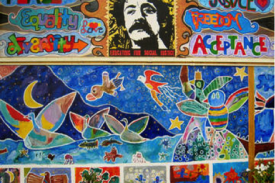
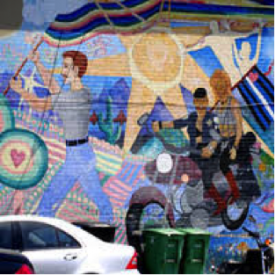
Transportation to and from this excursion site is by private bus. Meet your local guide under the huge rainbow flag at Castro and Market. This walking tour will take you through the gay history of the Castro district, including Harvey Milk Plaza, the Pink Triangle memorial park, honoring homosexuals persecuted in WW II, the Rainbow Honor Walk, and much more.
CANCELLED E7: Napa Valley Wine Bus Tour with Private Guide and Lunch | $180
Sunday, November 8
10:30AM – 6:30PM
Transportation is by private bus. Tour will include wine tastings at three vineyards. Registration does NOT include wine tasting fees which average $25 per vineyard. Wine tasting is optional. You may opt to taste wine at some or all of the vineyards, or not at all. A minimum of 18 (with a maximum of 20) people must register by October 1. No refunds can be given after October 1st, assuming at least 18 people register. If less than 18 people register, a full refund will be given.
CANCELLED E8: Alcatraz Prison Tour | $50
Sunday, November 8
10:30AM – optional return times via BART
Take a shuttle from the hotel to the BART station to the Ferry Building for lunch on your own (not provided) before boarding the 1:00PM ferry to the legendary Alcatraz prison. Ferries depart from Alcatraz approximately every 30 minutes. Well-behaved visitors may return on any one and then return to hotel by BART. BART tickets included in excursion fee.
E9: Privately Guided Mt. Tamalpais Hike with Gourmet Lunch | $120
Sunday, November 8
10:30AM – 5:30PM
Enjoy a 45 minute private bus ride from the hotel through San Francisco and across the Golden Gate Bridge to a trailhead on Mount Tamalpais where you will meet your local guide. Meander through a redwood, bay and alder forest, and cross bubbling creeks and streams on rustic wooden bridges, while making your way toward the historic West Point Inn, a classic old hiking lodge accessible only on foot. Take in the views while you enjoy your gourmet box lunch on the deck of the West Point Inn. Return to the trailhead via the very same route traveled by the old Scenic Railroad during the turn of the 20th century. This 4 mile hike has mostly moderate (500 ft) elevation gain, and a nicely varied landscape. You don’t have to be a marathoner to enjoy a truly spectacular experience. A minimum of 18 (with a maximum of 20) people must register by October 1. No refunds can be given after October 1st, assuming at least 18 people register. If less than 18 people register, a full refund will be given.
_____________________________________________________________________
POD MEMBERSHIP DUES
(in U.S. dollars)
| Individual membership (U.S. & International) | $115 |
| Institutional Membership (U.S. & International) (assuming 3 persons: $95 ea.) | $95 |
| Student or Retired (U.S. & International) | $65 |
_________________________________________________________________________
CONFERENCE REGISTRATION FEES
Conference registration fees do not include membership dues. If you would like to register at the lower, POD member rate, you must already be a member or you must renew or join before you register for the conference.
All fees, outlined below, are in U.S. dollars and payment must be made in U.S. dollars.
- Please note that the conference registration fee includes the designated conference meals, coffee breaks and receptions. Registration includes three breakfasts (Friday, Saturday, Sunday), two dinners (Thursday and Friday) and one lunch (Saturday).
- Pre-conference workshops, educational expeditions, and tables at the vendor exhibit have additional fees and must be selected when you register.
POD Member Registration Form (click here to register)
Non-Member Registration Form (click here to register)
| CONFERENCE FEES | “Early Bird” Registration Fee (Postmarked or submitted online through October 9; deadline strictly observed) |
Regular Registration Fee (Postmarked or submitted online from October 10 through November 3) |
On-site Registration Fee (On or after November 4) |
| Member | $475 | $515 | $535 |
| Non-member | $625 | $665 | $685 |
| Student (member) | $310 | $350 | $370 |
| Student (non-member) | $460 | $500 | $520 |
| Retired (member) | $310 | $350 | $370 |
| Retired (non-member) | $460 | $500 | $520 |
| One Day Only (member; includes lunch) | $190 | $230 | $285 |
| One Day Only (non-member; includes lunch) | $300 | $340 | $390 |
| Meals only for attendee’s guest (for entire conference). Membership is not required for meals only. Two dinners, one lunch, three breakfasts. | $275 | $295 |
_________________________________________________________________________
HOTEL RESERVATIONS
Please note: our reserved block of discounted rooms is full. See overflow options below.
Hyatt Regency San Francisco Airport
1333 Bayshore Highway
Burlingame, California, USA, 94010
Tel: +1 650 347 1234
Please use the following link to make reservations:
https://aws.passkey.com/e/13308318
in order to receive the group rate of $149 (traditional room – single/double). The group rate is available only until October 2, 2015 (subject to availability).
OVERFLOW HOTEL
Red Roof Inn San Francisco Airport
777 Airport Blvd. Burlingame, Ca. 94010
(half mile / 15 minute walk away from Hyatt Regency)
Reservation Procedure: Please email [email protected] to make a reservation. Please indicate arrival and departure dates and that you are with the POD Network. Call Edgar directly at 415.672.4964 to provide credit card details. He’ll be happy to call back if you leave a message.
Room Type: Standard Single/Double Room is at $130.00 plus 12% sales tax.
Rate is for single or double occupancy per room.
100% Smoke Free Policy: All our rooms are non-smoking. If your group smokes in the room, a $200 cleaning fee will be charged per room.
Hotel Amenities:
• Free Wi-Fi
• Free Airport Shuttle
• Flat Panel TV’s
—
Bay Landing Hotel (SOLD OUT)
(1-2 Block walk away from Hyatt Regency)
http://www.baylandinghotel.com/
1550 Old Bayshore Hwy, Burlingame, CA 94010
Group name: POD Network Overflow Rooms
$169/night plus tax
Group number: F-3388
November 4-8, 2015
Cut-off date: Thursday, October 15, 2015
Concessions: Complimentary deluxe Continental Breakfast daily, complimentary shuttle service to/from SFO International Airport, complimentary WIFI access in all guest rooms and public areas, complimentary parking
Please kindly inform your guests to contact our hotel directly and make room reservations. Call us 1-866-783-9612, or e-mail [email protected]. You MUST inform the reservations staff of either the group name or group number in order to get the discounted rate.
_________________________________________________________________________
TRANSPORTATION
Located on the San Francisco Peninsula, Hyatt Regency San Francisco Airport is a contemporary hotel near San Francisco International Airport with free shuttle service daily to and from SFO and Burlingame.
Complimentary San Francisco Airport Shuttle
Arrivals and departures are a breeze with our complimentary San Francisco airport shuttle. Our 24-hour shuttle runs every 10 to 15 minutes to and from San Francisco International Airport (SFO). From SFO, take your luggage to the Departures Level center island and look for the area marked “Hotel Shuttle.” The shuttle bus is marked “Hyatt Regency and Marriott.” For arrivals and departures between 12:00 a.m. and 4:00 a.m., free shuttles pick up guests every 30 minutes.
Driving Directions
From San Francisco International Airport (2 miles) – Take 101 South toward San Jose. Exit Millbrae Ave. Turn left on Millbrae Ave. Turn right at the second stoplight onto Bayshore Hwy. Proceed through 4 stoplights. Our hotel is on the right side.
From Oakland Airport (30 miles) and East – Take I-880 South toward San Jose. Merge onto CA-92 W toward San Mateo Br. Merge onto US-101 N toward San Francisco to the Broadway Exit. Take the Airport Blvd ramp toward Bayshore Blvd, and then turn left onto Bayshore Hwy to our hotel.
From San Jose Airport (30 miles) and South – Take 101 North to the Broadway Exit. Take the Airport Blvd ramp toward Bayshore Blvd, and turn left onto Bayshore Hwy. to our hotel.
_________________________________________________________________________
SHIPPING INFORMATION
The Hyatt Regency SF Airport will only accept pre-paid packages. All packages must contain a label with the following information:
- Return address
- Addressed to:
POD Network Conference
November 4-8, 2015
Group contact: Nicole Ong, Event Manager
YOUR NAME HERE W/ DATE OF ARRIVAL
Hyatt Regency San Francisco Airport
1333 Bayshore Highway
Burlingame, California, USA, 94010
ALL PACKAGES SHOULD BE SENT TO ARRIVE NO EARLIER THAN NOVEMBER 1. THE FOLLOWING PER-UNIT RECEIVING FEES APPLY (TO BE PAID BY SHIPPER OR PERSON PICKING UP PACKAGE):
BOX (1-25 POUNDS) = $6 | BOX (26-50 POUNDS) = $12 | CRATE (1-150 POUNDS) = $50
CRATE (0VER 150 POUNDS) = $150 | PALLET = $150
_________________________________________________________________________
